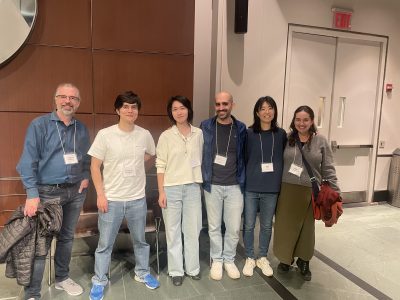The 2026 edition of the Annual Meeting of the Linguistic Society of America took place January 8-11 in New Orleans. UConn linguistics was well represented at the conference with talks by:
- Qiushi Chen. On fission and the cycle: Lessons from Japhug agreement
- Helen Koulidobrova (PhD 2012, now at Central Connecticut University), Julio v. Aguirre, Jorge Banet, Fernanda v. Bossano. Steps in Collaborative Documentation of Ecuadorian Sign Language (LSEC)
- Yixuan “Pepper” Yan. Presupposition of alternative questions: The view from child Mandarin
- Emily Jo Noschese and Diane Lillo-Martin. Noun Phrases with Multiple Adjectives in American Sign Language
- Seungho Nam, Seo-young Lee and Se Yeon Park. QUD sensitivity as a parameter of presupposition triggers: Evidence from Korean
- Bonnie Barrett, Linghui “Eva” Gan, Deborah Chen Pichler (PhD 2001, now at Gallaudet University) and Diane Lillo-Martin. L2 Grammatical Development of ASL by Hearing Parents of Deaf Children
- Margaret Chui Yi Lee. Do children exhibit consistent patterns across different uses of definites? A case study of Hong Kong Cantonese-speaking children
… a poster presentations by:
- Troy Messick (PhD 2017, now at Rutgers University). Pronoun and Anaphor (non)complementarity in PPs: A view from coordinated reciprocals
- Troy Messick and Merlin Balkhash. Indexical and agreement shifting in Kazakh
- Jeremy Johns and Helen Koulidobrova. Where Indigenous language revitalization and dominant L2 instruction meet: converging on the Indigenous pedagogy
In addition, Qiushi Chen was a recipient of the Centennial Student Scholarship Award. Congratulations!

